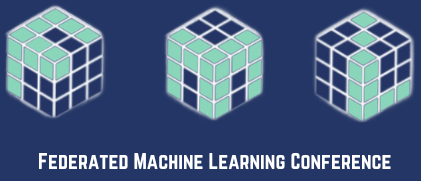Scope:
The International Symposium on Federated Learning Technologies and Applications (FLTA) is a premier venue for timely publication of archival research on FL management, systems, services and applications. FLTA aims to provide attendees with a comprehensive understanding of FL communication, computing, and system requirements. Through keynote speeches, panel discussions, and presentations, attendees will have the opportunity to engage with leading experts and learn about the latest developments and future trends in the field.

FLTA focuses on fostering an understanding of FL, identifying technical challenges, and exploring potential solutions, including distributed optimization, privacy-preserving techniques, intelligent learning algorithms, personalized FL, communication efficiency approaches, open challenges, and recent trends and opportunities. We welcome submissions addressing the important challenges (see the non-exhaustive list of topics below) and presenting novel research or experimentation results with system or network-related case studies. Survey papers that offer a perspective on related work and identify key challenges for future research will be considered as well. We look forward to your submissions!
Specific topics of interest include, but are not limited, to the following:
- Large-scale FL applications in IoT environments
- Applications of FL
- Blockchain for FL
- Data Heterogeneity in FL
- Device heterogeneity in FL
- Fairness in FL
- Hardware for on-device FL
- Federated transfer learning
- Adversarial attacks on FL
- Optimization advances in FL
- Partial participation in FL
- Personalization in FL
- Privacy Concerns in FL
- Privacy-preserving methods for FL
- Resource-efficient FL
- Systems and infrastructure for FL
- Theoretical contributions to FL
- Vertical FL
- Federated IoT
- Security in FL
- Explainable FL and AutoFL
- FL clients model heterogeneity, aspects and solutions
- Recommendations systems based on FL
- Clustering FL techniques
- Federated Reinforcement LearningFederated Learning with Non-IID Data
- Horizontal, Vertical and Transfer Federated Learning: challenges and opportunities
- FL approaches using traditional ML
- FL secure fusion functions
- Communications efficiency in FL
